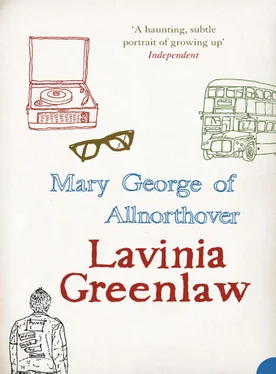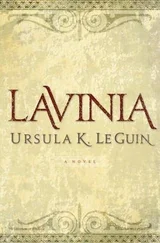The Knights had prospered for a hundred years in austerity and chastity before the parish turned on them when the crusades failed, with accusations of idolatry, homosexuality and child murder. There was still a whiff of that six-hundred-year old scandal about the place. Saplings struggled up through nettles and brambles, only to give up before they emerged from the shadows. The wood was dark and difficult to find a way into. Those who wanted to walk their dogs, pick blackberries or bluebells, or tire out their children, went out through the other end of Allnorthover and into the Setts, a solid wildwood of oak, chestnut and beech with wide paths and clearings, National Trust signs, and bamboo and rhododendrons that made it seem like nothing more than an overgrown garden.
Temple Grove was where you went to build a den, try your first cigarette and, later, to drink cider round a fire, smoke dope and scare each other with stories about the Man in the Van and his goats, or about the day someone found a makeshift altar here, three bales of straw, a black candle and a chicken’s foot. Billy and Mary had done these things and had heard all the stories. Neither of them knew who was supposed to have found the altar but they believed it. Once, they had found a full set of women’s clothing, including bra and knickers, next to three old sofa cushions. The cushions had been ripped open and scorched.
At some recent critical point, Temple Grove had become too small to hold secrets. It lost a little more of itself each year, as the farmers pushed the fields harder against it. Children went in knowing they could be out in under a minute, that they could always be heard and could hear their friends calling from the road or the field. Ingfield Dip was full of water, the Grove was half gone, mile after mile of hedgerow was being uprooted and clusters of new houses were springing up all around, with new windows from which to be seen. Where was there to go now, not to be visible?
There were people living right next to the Grove now, too. The Strouds had sold off land for a caravan site called Temple Park that the villagers preferred to think didn’t really exist. But like the hospital, the courts or the Social Security office, most people had a connection with the place at some time or other: a friend or relative needing a cheap rent or placed there by the Council. The village was growing older as the old lived longer and the young moved away. Like the two cemeteries, the almshouses were full. A senile widower, a pregnant daughter, all those who might have been cast out or taken in, or sent to an institution, another town, another country, found themselves here. They lived quietly and came to the village as little as possible, mostly to get the prescriptions that helped them sleep, walk or breathe.
The caravans were set at odd and irregular angles, as if to suggest some spontaneous arrangement or natural development. Packed close together, they were turned away from each other as much as possible, and were painted in unobtrusive shades of pale green, beige and grey that matched the worn grass, gravel and cement that defined each plot. The caravan dwellers took on this drabness and were recognised by it. They made cramped, effortful gestures and their skin had a greenish tinge, as if they brought with them the light of their evenings squeezed close to their televisions.
When the heatwave started, they began to leave their doors open all night. Then they took to unclipping their tubular aluminium folding tables and chairs, and taking them outside. They began to have their meals outdoors, first in the evenings and then at breakfast, too. They neither disturbed nor joined each other. Couples sat down as usual to talk about the children, the bills, a holiday, an illness or the weather. They would remain, only yards apart, within the privacy of their small square of grass. The heat opened the pores of their skin; sweat made them conscious of their breasts, bellies and thighs; their clothes were tight or heavy. The secrets, confessions and ultimatums that might have surfaced got stuck. No marriages were saved or broken. By the end of June, the tables were making way each evening for mattresses, lilos and camp beds, but only after dark. At dawn, everyone crept indoors to dress with the guilt and pleasure they might have got from staying out all night unexpectedly.
Mary crept along the paved road that wound from one end of the site to the other. She passed a couple folding up their camp beds and a young mother gathering sheets, her naked baby fast asleep on a pillow beside her. If they were taken aback by Mary’s presence, she didn’t notice. She probably didn’t even see them. Mary’s glasses were the smallest, least obtrusive she could find, but still they weighed upon her heavily. There was too much, anyway, between her and the world, without those thick lenses. They corrected her vision, but she could not feel what she could see. So Mary tended to keep her head down and imagine.
Beyond Temple Park was a small breaker’s yard, the size of a meadow in which a family might keep a pony. It was just a worn-out patch of oil-stained earth, now dried and cracked and hardened by the heat. There were always a few cars dumped along the back hedge, mostly those that were too big, too small or too gimmicky, a Humber perhaps or a Robin Reliant. Some were picked away, scavenged for spare parts; others rusted and sank into the ground. The yard belonged to Fred Spence, a compact and taciturn man who lived with his wife in one of the smallest, oldest caravans in Temple Park. He kept a filthy truck parked in the yard and drove away in it, early each morning. Fred was often gone all day but rarely brought anything back. Mostly he dealt in incidental scrap – guttering, a trailer, a gate, pipes.
Fred Spence’s wife spent her days cleaning and when her home was done, she’d scrub and polish the outside of his ‘office’, a tiny outhouse with a single window. She was not allowed inside and nor were Fred’s customers. On the rare occasions that money changed hands in the yard, Fred entered his office and opened the window to receive it. Dorothy Spence was not allowed to touch the truck either.
In those long days of fierce light, Dorothy Spence could not stop thinking about glass and, in particular, windows. It had become too hot to keep cleaning her home so she worked on the outside, preferring the parts that give her a glimpse in. Mary George met her at the yard gate. She barely recognised the woman she saw on the bus into town with her line of lipstick, and bright hat and gloves. To Mary, without these accessories, Dorothy Spence had no mouth or hair or hands.
‘You’re the George girl? I thought you were your brother.’
‘I have no brother.’
‘Sometimes you look like him.’
‘Can I help you carry those?’
Dorothy Spence took a step back, ‘Thank you.’ She shook her head, scrutinising Mary, before adding ‘You need a good wash, my girl,’ and was satisfied when the child did not protest. She walked carefully away, a bucket of dusters, brushes and cleaning fluid in either hand. Mary watched her begin to polish the windscreen of a crumpled Ford Cortina.
Mary’s pale face was lit with pink across her cheeks and nose, a livid colour that looked not like sunburn but some internal heat. Her fringe fell limply into her eyes and so, to keep it off her face, she took a red scarf patterned with dark gold flowers out of her bag, tied it round her head and set out to walk the last mile home. The makeshift turban made her both majestic and menial, a boy king or a kitchen maid. Her clothes looked accidental, borrowed or found, all of them ill-fitting and far too heavy.
The Verges had ten clear yards of mown grass on either side. In the days when roads like this were a favoured route for merchants, robbers and highwaymen lurked among woods and between villages. A statute was passed, decreeing that all trees and bushes be pulled up so that they would have nowhere to hide. Now, this sudden width had a vertiginous effect on drivers who had crept out of the traffic snarl of Camptown, or had been driving under the limit through Allnorthover on a speed-trap day. The widening landscape encouraged them, and there were many accidents as the road was really quite ordinarily narrow and its corners particularly nasty, not the gentle sweeps they appeared at all, but full of odd angles that caught you off guard. The Verges curved slyly back and forth and then the road straightened, the banks disappeared and the village of Allnorthover began with clusters of small tied cottages set hard on the road. It was at this point that Mary saw the man again. She had been walking along the bank close to the trees, trying to find some shade. He was standing quite still at the point where everything narrowed again, facing in the direction of the village.
Читать дальше












